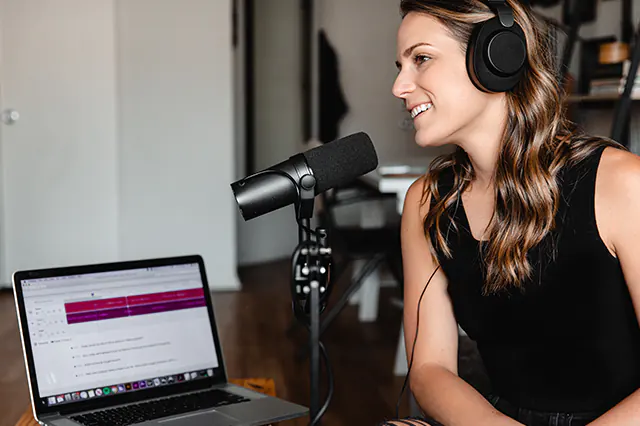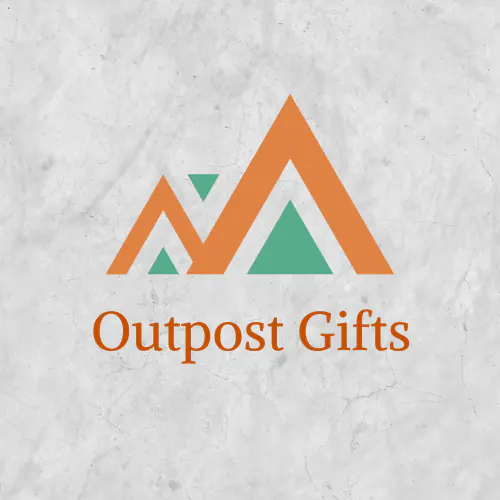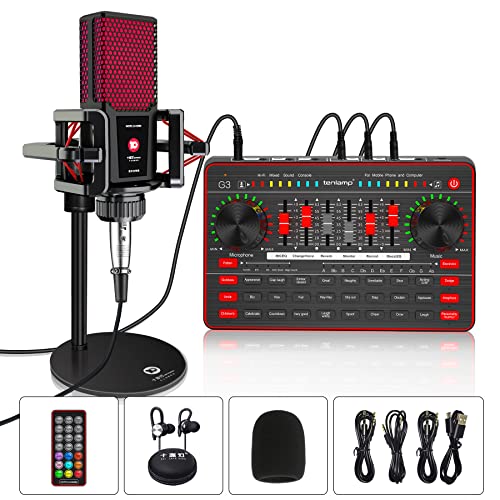
Learn Podcasting
Learn How To Be A PodCaster
In this day and age, there are so many ways to get your voice out there – and one of the most popular methods is through podcasting! If you’ve ever considered starting your own podcast but didn’t know where to start, this article is for you. From planning out your content to recording and editing your episodes, we’ll cover everything you need to know to get started in the world of podcasting.
What is a podcast?
A podcast is a digital audio file that is available for download from the internet. Podcasts are usually episodic, with new episodes becoming available on a regular basis, and are often free to download.
How to start a podcast
If you’re thinking about starting a podcast, you’re not alone. According to Edison Research, 32% of Americans have listened to a podcast in the last month. And, with over 750,000 active podcasts and more than 18.5 million episodes available, there’s a podcast for everyone.
So, how do you start a podcast? It’s easier than you think. In this blog post, we’ll walk you through everything you need to know to get started, including how to come up with a great idea for your show, how to record and edit your episodes, and where to host your podcast. By the end, you’ll be ready to launch your very own podcast!
What You’ll Need:
1. A great idea for your show
2. A microphone and recording software (we recommend the Blue Yeti USB Microphone)
3. A quiet place to record
4. An episode editing program (we recommend Audacity)
5. A hosting platform (we recommend Libsyn)
6. Cover art for your show
7.Episode titles and descriptions
The different types of podcast formats
There are a few different types of podcast formats, and each has its own advantages and disadvantages. Here’s a breakdown of the different types of podcast formats:
1. Serialized Podcast: A serialized podcast is a series of episodes that follow one another in a linear fashion. This type of podcast is great for stories with a complex plot line or for discussing a complex topic. Serialized podcasts can take a lot of time to produce, so be sure to plan your episode length wisely.
2. Micro-Episodes: A micro-episode is a shorter form of podcast that consists of only one or two minutes long. Micro-episodes are perfect for quickly sharing an idea or over viewing a new topic. They’re also great for creating content that can be easily consumed on the go. Because they’re so short, you don’t have to worry as much about creating a quality show.
3. Interview Podcasts: An interview podcast is similar to a micro-episode, but it features conversations between two or more guests. Interview podcasts are great for getting insights from experts in various fields, and they can be quite entertaining to listen to. You’ll need to be prepared to invest a lot of time into creating good interview questions, though.
4. Live Podcasting: Live podcasting is a great way to create engaging content that’s perfect for audiences who want to hear the show in real time. Because it’s live, you’ll need to be prepared to answer questions quickly and handle any unexpected situations that may occur. However, live podcasting can be a lot of fun, and it can be a great way to build relationships with your audience.
5. Ongoing Podcast: An ongoing podcast is a series of episodes that are released on a regular basis. This type of podcast is great for creating long-term content that your audience can follow over time. You’ll need to invest a lot of time into creating good content, but ongoing podcasts can be incredibly valuable for building your brand and reaching new audiences.
The benefits of starting a podcast
There are many benefits to starting a podcast. Not only can you share your content with a global audience, but you can also create a powerful marketing tool for your business. Here are five reasons why starting a podcast is a great idea:
1. Podcasts can be highly effective marketing tools.
The average podcast listener is 25 years old, affluent, and highly engaged with the internet. They are primed to listen to your brand’s voice and learn about new products or services. Plus, since podcasts are interactive, you can ask your listeners questions and get feedback that can help improve your content.
2. Podcasts can be an important source of customer feedback.
When you produce a podcast, you become the authority on the topic you’re discussing. This gives you the opportunity to gather feedback from your listeners and use it to improve your content and future episodes. Not only will this increase the engagement of your listeners, but it will also help you build trust with them – crucial when trying to convert leads into customers.
3. Podcasts can help grow brand awareness.
Since podcasting is such a new medium, there isn’t much competition yet. This means that you have a great opportunity to stand out and be noticed. By creating a podcast that speaks to your audience, you can build trust and create a loyal following. This will help you when it comes to marketing your business and reaching new customers.
4. Podcasts are a great way to connect with your audience.
Podcasts are unique in that they allow you to have dialogue with your listeners. This means that you can get feedback on your content, ask questions that provoke thought, and explore topics that interest them. In turn, this builds trust and engagement between you and your listeners – key ingredients for a successful marketing campaign.
5. Podcasting can be fun!
Starting a podcast is a great way to share your knowledge and passion with the world. It can be addictive, which is why it’s important to take the time to plan and produce high-quality content. If you enjoy podcasting, then it’s likely that others will too – making it an extremely powerful marketing tool.
Pros and cons of podcasting
There are many pros to podcasting, but there are also a few cons to consider before jumping in. Here are some of the benefits and drawbacks of podcasting:
Benefits of Podcasting:
– Easily share your content with a large audience.
– Can be done on your own schedule.
– Can be produced in a minimal amount of time.
– Can be monetized with advertising or subscription fees.
– Can reach a wide range of people.
– Can be easily edited and updated.
Drawbacks of Podcasting:
– Requires some technical knowledge to start and maintain.
– May require more time than you initially think to produce an episode.
– Not always available when people want to listen.
– May not be as impactful as other media when it comes to breaking news or highbrow conversation.
What equipment do you need to start a podcast?
In order to start a podcast, you will need some basic equipment. Podcasting software (like iTunes or Overcast) will allow you to create and manage your episodes, as well as share them with others. You’ll also need a microphone, an audio editing program, and some music. Finally, you’ll need a way to distribute your episodes online (like iTunes or SoundCloud).
How to record and edit your podcast
There are a few things you need to get started before you can start recording and editing your podcast. First, you will need to have a microphone and software that can record and edit audio. Second, you will need to create a podcasting schedule and stick to it. Finally, make sure to promote your podcast and find listeners who will enjoy listening. Here are a few tips on how to be a successful podcaster.
To begin recording your show, set up your mic and software in a quiet location where you won’t be disturbed. Once everything is ready, start by introducing yourself and your show. Next, provide the date, time, and topic of your show. After that, let the conversation flow! The more natural your conversation sounds, the more people will likely want to listen. When it comes to editing your show, use careful microphone placement and take care when cutting or adjusting audio. Be sure to use digital audio editing software that offers good sound quality for podcasts. Lastly, be sure to promote your show through social media platforms (LinkedIn, Twitter etc.) and email listservs so that people can find out about it. If you put in the work along with some luck,you’ll be a successful podcaster in no time!
Where to host your podcast
If you’re thinking about starting a podcast, the first step is to find a place to host it. There are plenty of options out there, but we recommend PodCaster. We’ve built an easy-to-use platform that makes creating and hosting your podcast a breeze.
To get started, head over to PodCaster and sign up. Once you have an account, you’ll need to create a show. This process is simple and takes just a few minutes. Once your show is ready, you can start uploading your episodes.
PodCaster makes it easy to share your show with the world. You can use our powerful social media tools to connect with your audience and spread the word about your show. Plus, we offer great features like ad support and bulk uploads, so you can keep your podcast consistent and on schedule.
If you’re ready to take your podcasting skills to the next level, we recommend checking out PodCaster. It’s the perfect place to start hosting your show!
How to promote your podcast
There are a few ways to promote your podcast. One way is to distribute episodes through online platforms like iTunes, SoundCloud, and Stitcher. Another way is to market your podcast through social media platforms like Twitter and Facebook. You can also create a web page for your podcast and post about it on websites like Reddit and The Huffington Post. Finally, you can conduct live interviews and broadcasts to spread the word about your show. Whatever approach you choose, make sure to be consistent with it so that your audience knows where to find you.
Conclusion
If you’re looking to improve your online presence and start monetizing your podcast audience, then becoming a podcaster is the way to go. In this article, we’ll outline everything you need to know in order to get started as a podcaster and make money from your show. From setting up a basic website and audio equipment, to creating high-quality content and marketing your show effectively, we’ll provide all the tips and tools you need so that you can start making some real income from your hobby. So what are you waiting for? Start learning how to be a podcaster today!
































![Podcast Equipment Bundle Aluminum Alloy Panel with Studio Condenser Microphone Sound DJ Mixer Broadcast ALL-IN-ONE Audio Interface [DIY Sound Effect] For PC/Laptop/Phone,Streaming/Podcasting/Recording](https://m.media-amazon.com/images/I/51VsKSu2UdL.jpg)
